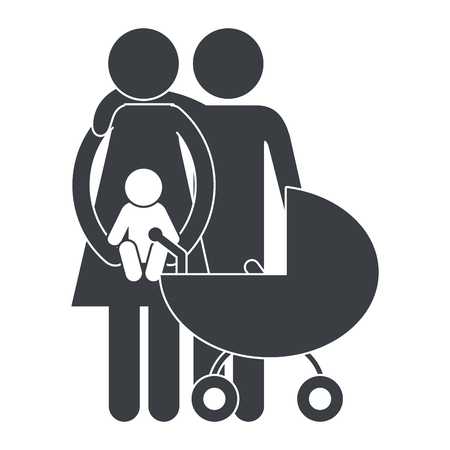Introduction to NHS Maternity Services in the UK
When you embark on your journey to parenthood within the United Kingdom, the National Health Service (NHS) becomes a central part of your experience. The NHS offers comprehensive maternity services designed to support families from early pregnancy through birth and into the postnatal period. However, it’s important to recognise that while the NHS is a national institution, maternity care differs across England, Scotland, Wales, and Northern Ireland due to devolved healthcare policies and regional priorities. Understanding these differences can empower you to make informed decisions about your care, feel confident in your choices, and foster a positive relationship with your midwives and doctors. Below is an overview highlighting the key distinctions in how maternity services are structured across each nation:
Nation |
Main Provider |
Key Features |
|---|---|---|
| England | NHS England | Personalised maternity pathways, continuity of carer initiatives, choice of birth settings including home births, birthing centres, and hospitals. |
| Scotland | NHS Scotland | Midwife-led care focus, “Best Start” policy promoting family-centred approaches, strong community midwifery presence. |
| Wales | NHS Wales | Emphasis on bilingual services (Welsh/English), localised maternity units, strong midwife involvement throughout pregnancy. |
| Northern Ireland | NHS Northern Ireland (HSC) | Combination of consultant-led and midwife-led care, community engagement, flexible antenatal education programmes. |
This regional diversity means that expectant parents in different parts of the UK may have varying experiences regarding appointments, available birth options, language support, and models of care. By familiarising yourself with these differences early on, you’ll be better prepared to navigate your personal maternity journey with confidence and clarity.
2. Your Legal Rights Throughout Maternity Care
Understanding your legal rights during maternity care is essential for building confidence and trust as you prepare to welcome your baby. The NHS in England, Scotland, Wales, and Northern Ireland shares key principles, but there may be regional variations in how services are delivered. At the heart of maternity care is respect for your autonomy, dignity, and informed choice throughout pregnancy, birth, and the postnatal period.
Your Fundamental Rights Explained
All expectant parents within the NHS have a core set of rights designed to support both physical wellbeing and emotional security:
| Right | Description | Why It Matters |
|---|---|---|
| Choice of Hospital or Birth Setting | You can choose where to give birth – whether in an NHS hospital, birth centre, or at home (subject to local availability and clinical safety). | This empowers you to select the environment that feels safest and most supportive for your family’s unique needs. |
| Consent | No examination or procedure should be carried out without your explicit consent. You have the right to say yes or no at any point. | This protects your bodily autonomy and ensures you remain central in all decisions about your care. |
| Privacy and Dignity | Your privacy must be respected during appointments, examinations, and labour. This includes personal information confidentiality and physical privacy. | Feeling secure allows you to focus on your emotional connection with your baby and partner. |
| Informed Decision-Making | You should receive clear, unbiased information about your options, risks, and benefits so you can make choices that align with your values. | This supports confident parenting from day one by including you in every decision affecting you or your child. |
Navigating Regional Differences Across the UK
While these fundamental rights apply across all four nations, there may be differences in service organisation. For example, some birth centres may only be available in certain regions, while guidelines on midwife-led versus consultant-led care can vary. It’s important to ask questions specific to your area so you know exactly what is available locally.
A Nurturing Approach: Building Trust with Your Care Team
Remember, respectful communication and mutual trust lay the foundation for positive parent-child relationships long before birth. By understanding your rights—and feeling empowered to speak up—you model healthy boundaries and self-advocacy for your growing family. If you ever feel unsure or unheard during maternity care, seeking advice from advocacy services or charities like Birthrights or Maternity Action can help ensure you receive the support you need for a safe and fulfilling start to parenthood.

3. Personalising Your Birth Plan
Creating a birth plan is a deeply personal journey for every parent-to-be, and the NHS across England, Scotland, Wales, and Northern Ireland recognises the significance of your choices during this special time. Within the NHS maternity system, you have the right to explore various options for where and how your baby is born, as well as to make informed decisions about pain relief and your involvement in care planning. Understanding these choices can help you feel empowered and respected throughout your experience.
Exploring Birth Settings
The NHS offers several settings for giving birth, each with its own benefits depending on your preferences, medical needs, and circumstances. Below is an overview of the common options available:
| Birth Setting | Description | Availability |
|---|---|---|
| Home Birth | Supported by community midwives; suitable for low-risk pregnancies. | Available in most regions, subject to risk assessment. |
| Midwifery-Led Unit (Birth Centre) | Run by midwives; homely environment; focuses on natural birth. | Widely available but may vary locally. |
| Hospital Labour Ward | Access to doctors and specialist equipment; recommended for higher-risk pregnancies or if complications are expected. | Available in all NHS Trusts and Health Boards. |
Pain Relief Options
Your comfort during labour matters. The NHS supports your right to choose from a range of pain relief methods. You can discuss these options with your midwife or obstetrician as part of your antenatal care:
- Natural techniques: Breathing exercises, movement, water immersion (birthing pools).
- Medical options: Gas and air (Entonox), pethidine or diamorphine injections, epidural anaesthesia.
- Alternative therapies: Some units may offer complementary therapies like acupuncture or aromatherapy.
Your Involvement in Care Planning
The NHS places great importance on shared decision-making. Your wishes regarding interventions, support people present at birth, cultural or religious considerations, and postnatal care are all respected and should be discussed openly with your healthcare team. Parents are encouraged to create a written birth plan, which serves as a guide for your preferences but remains flexible in case circumstances change during labour.
How the NHS Respects Parental Preferences
- Antenatal discussions: Regular appointments provide opportunities to ask questions and refine your plan.
- Personalised care: Midwives and doctors consider your emotional wellbeing alongside medical needs.
- Cultural sensitivity: Staff receive training in respecting diverse backgrounds and values.
Nurturing Confidence Through Choice
Personalising your birth plan within the NHS helps nurture trust between parents and professionals. Knowing that your voice is heard not only supports positive psychological development during pregnancy but also strengthens family bonds as you prepare to welcome your baby together.
4. Accessing and Understanding Support Services
Pregnancy and early parenthood are transformative times, filled with both excitement and uncertainty. The NHS across England, Scotland, Wales, and Northern Ireland offers a rich network of support services to guide you and your family through this journey—emotionally and practically. Knowing what’s available can help you feel empowered, connected, and confident as you navigate your choices.
Midwifery Teams: Your Frontline Partners
From the moment you learn you are pregnant, midwives become central figures in your care. Midwifery teams offer regular antenatal appointments, support during labour and birth, and postnatal visits. They provide evidence-based information tailored to your needs and respect your preferences regarding birth plans. If you have specific questions or anxieties, midwives are there to listen and guide you sensitively.
Health Visitors: Continuing Support After Birth
Once your baby arrives, health visitors step in as key supporters for your family’s ongoing wellbeing. These registered nurses or midwives specialise in child development and family health. They visit you at home or see you in local clinics, offering advice on infant feeding, sleep routines, immunisations, and emotional adjustment to parenthood. Health visitors also help monitor your baby’s growth and development milestones, ensuring that any concerns are addressed early on.
Perinatal Mental Health Services: Emotional Wellbeing Matters
Your emotional health is just as important as your physical health during this time. Perinatal mental health services provide assessment, counselling, and treatment for parents experiencing anxiety, depression, or other mental health challenges related to pregnancy or new parenthood. These services often work closely with midwives and GPs to ensure holistic care for both parents.
Overview of Key Support Services by Country
| Service | England | Scotland | Wales | Northern Ireland |
|---|---|---|---|---|
| Midwifery Teams | Community & hospital-based; choice of lead maternity carer | Continuity of carer model; specialist midwives available | Antenatal clinics & community support; Welsh language options | Community outreach; integration with GP surgeries |
| Health Visitors | Universal service until age 5; regular home visits | Named health visitor; support groups available | Bilingual resources; targeted family support programmes | Developmental checks; referrals to local parenting groups |
| Perinatal Mental Health Services | NHS Talking Therapies; specialist perinatal teams in most areas | Mental Health Pathways; support via Maternal & Infant Mental Health Service (MIMHS) | Counselling via local NHS trusts; peer-support initiatives | Early intervention teams; access through GP or midwife referral |
Navigating Support for Your Unique Family Journey
No two families are alike. Whether you’re seeking reassurance about feeding choices or navigating the emotional highs and lows of new parenthood, the NHS is committed to offering non-judgemental support. You have the right to ask questions, request additional help, or be referred to more specialised services if needed. Remember: reaching out is a sign of strength—not weakness—and helps create a nurturing environment for both you and your baby.
5. Raising Concerns and Making Complaints
When navigating the NHS maternity system in England, Scotland, Wales, or Northern Ireland, it is important to know that your voice matters. Whether you have questions about your care, wish to offer feedback—positive or negative—or feel the need to raise a formal complaint, understanding the right pathways can help ensure your concerns are addressed with respect and compassion.
How to Raise Questions or Give Feedback
If you have immediate questions or worries during your maternity journey, start by speaking directly with your midwife, consultant, or another member of your care team. Open communication often resolves misunderstandings and provides reassurance. For ongoing concerns, you might prefer to submit feedback in writing or through official patient experience channels.
Feedback Options at a Glance
| Nation | Main Feedback Channel | Additional Support |
|---|---|---|
| England | PALS (Patient Advice and Liaison Service) | Maternity Voices Partnership (MVP) |
| Scotland | NHS Inform Feedback Service | Patient Advice and Support Service (PASS) |
| Wales | Putting Things Right (NHS Wales) | Community Health Councils (CHCs) |
| Northern Ireland | Health and Social Care Trusts Complaints Departments | Patient and Client Council (PCC) |
Making a Complaint: Your Rights and What to Expect
If you feel that your concerns were not resolved informally or if something more serious has occurred, you have the right to make a formal complaint. Each UK nation has its own process, but all are designed to be accessible and supportive. You can usually complain in writing, by email, or over the phone. It’s helpful to keep a record of dates, names, and details of what happened.
The Complaint Process: Step-by-Step
- Raise the issue as soon as possible—ideally within 12 months of the event.
- Contact the relevant feedback/complaints service for your region (see table above).
- You should receive acknowledgement within three working days and information about how your complaint will be handled.
- An investigation will take place, during which you may be contacted for further information.
- You’ll receive a written response outlining the outcome and any actions taken.
Support Available for Navigating Challenges Compassionately
Navigating maternity care can feel overwhelming at times. If you find it difficult to express your concerns or need emotional support throughout the process, independent advocacy services are available in each nation. These services can guide you through making a complaint or simply be there to listen as you process your experiences as a parent-to-be. Remember, seeking help is an act of self-advocacy—not confrontation—and is part of ensuring both you and your baby receive safe, respectful care.
6. Involving Your Family in the Care Journey
Welcoming a new baby is not only a transformative experience for you, but also for your partner and wider family. The NHS maternity system across England, Scotland, Wales, and Northern Ireland actively encourages family involvement at every stage. This approach not only supports your emotional well-being but also helps nurture the parent-child bond from the very beginning. Understanding how your loved ones can participate makes the journey more connected, supportive, and meaningful for everyone involved.
Ways Your Partner and Family Can Participate
Your partner and close family members have an important role throughout your pregnancy, labour, and postnatal care. Their involvement can be both practical and emotional, enhancing your overall experience and helping to create a positive environment for your babys arrival.
Stage of Maternity Care |
How Family Can Participate |
|---|---|
| Prenatal Appointments | Attend scans or check-ups with you (subject to NHS guidelines), ask questions, listen to healthcare advice together, help remember important information. |
| Antenatal Education | Join antenatal classes provided by the NHS or local community groups; learn about labour, birth options, feeding, and newborn care as a team. |
| Labour & Birth | Be present as your birth partner (most hospitals allow at least one person); provide physical comfort; advocate for your wishes with staff; share the first moments with your baby. |
| Postnatal Support | Assist with feeding, nappy changes, and settling the baby; support you emotionally during recovery; help with household tasks so you can rest. |
| Bonding & Mental Health | Encourage skin-to-skin contact with both parents; share night-time duties where possible; look out for signs of postnatal depression and seek support if needed. |
Cultural Considerations Across the UK Nations
Family structures and traditions may vary between England, Scotland, Wales, and Northern Ireland. The NHS recognises these differences and strives to accommodate cultural preferences wherever possible—whether it’s involving grandparents in appointments or respecting language needs during consultations. Discuss any special requirements or traditions with your midwife so they can best support your family’s involvement.
The Benefits of Family Participation
- Emotional Support: Partners and family provide reassurance during uncertain times.
- Stronger Parent-Child Bond: Early involvement fosters attachment between baby and both parents.
- Shared Knowledge: Attending appointments together ensures everyone understands choices and next steps.
- Mental Wellbeing: Feeling supported reduces anxiety and builds parental confidence.
Nurturing Togetherness for a Positive Start
Your journey through the NHS maternity system is unique—and so is your family. By inviting loved ones to participate wherever possible, you lay strong foundations for lifelong connection, resilience, and joy as a new parent in the UK.


